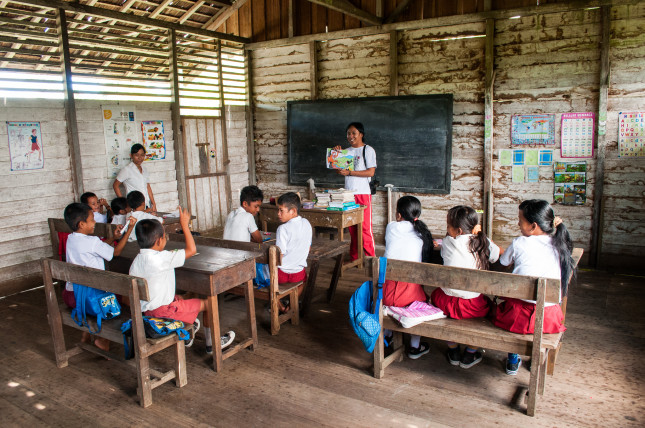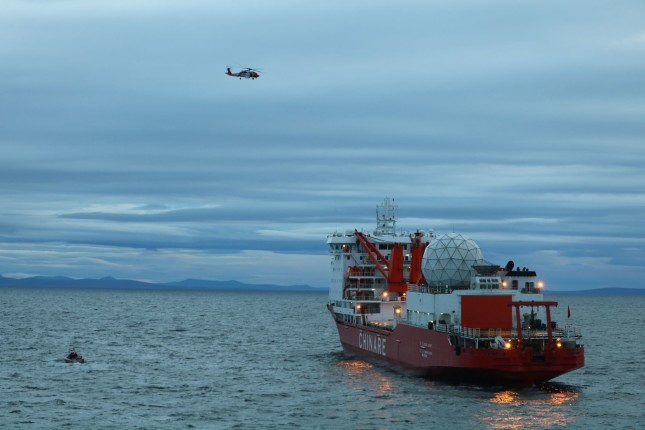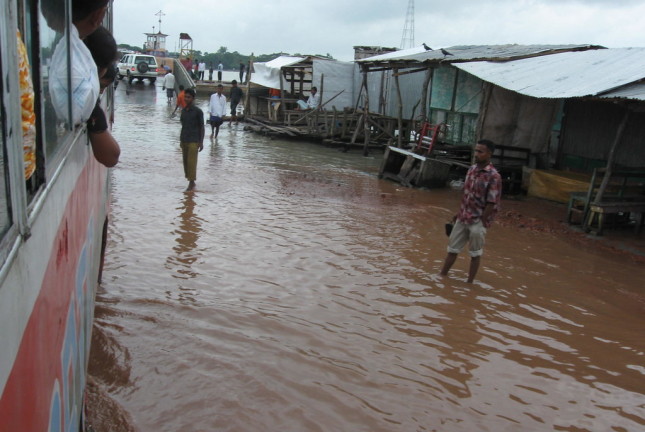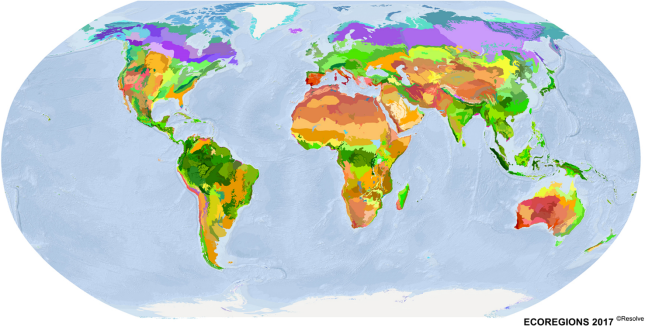-
Not Too Big—Not Too Small—Just Right: Sand Bioreactor Wastewater Treatment in Chinese Villages
›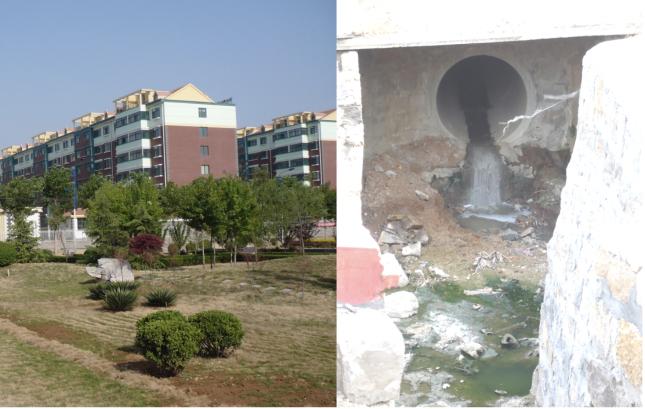
One year after the Sichuan earthquake, while visiting villages near Wenchuan, I asked local officials planning reconstruction about their plans for wastewater treatment. As an agricultural engineering professor, I was not surprised to learn that they had no plans. It was not that a wastewater treatment system was too expensive, they worried that it would be too big.
-
Climate Change May Weaken Children’s Education in the Tropics
›
In parts of the tropics, exposure to extreme temperature or rainfall in early life is associated with fewer years of schooling in later childhood. This finding comes from my new article in the Proceedings of the National Academy of Sciences, with coauthor Clark Gray. As climate change leads to increasingly severe heat waves, floods, droughts, and hurricanes, it is important to understand how extreme weather impacts kids’ education in different parts of the world. This will help decisionmakers develop solutions to keep children in school in a world of increasing climate variability.
-
Reclaiming China’s Worn-out Farmland: Don’t Treat Soil Like Dirt
›
China’s food security is rooted in its soil. Sadly, more than 40 percent of China’s soil is degraded from overuse, erosion, and pollution. The government’s 2014 soil survey revealed that 19 percent of China’s farmland was contaminated by metals such as lead, cadmium, and arsenic as well as organic and inorganic chemical pollutants. As part of its growing war on pollution, China’s central government enacted a new soil pollution law on January 1, 2019, to clean up contaminated sites. However, this new law targets just one of the many critical soil quality issues that reduce agricultural yield but does not address the problem of compacted soil.
-
A Warmer Arctic Presents Challenges and Opportunities
›As Arctic ice melts, we can physically see glaciers retreating. But what we can’t yet see is the exact effect climate change will have on the environment, humans, economies, and national security. Less ice for longer periods each year will likely bring opportunities and related challenges as Arctic and non-Arctic states jockey for position.
-
Can Big Multinational Retailers Save Our Planet?
›
As we move past another Earth Day, environmentalists may be forgiven for assuming that little has changed. The best available evidence points to a rapidly changing climate, declining biodiversity, and fisheries on the verge of collapse. To further complicate matters, the political will to reverse these trends is being stymied by a surge of anti-environmental populism in America, Brazil and elsewhere. When coupled with the continued harvesting of natural resources by big multinational corporations, it is easy to see why environmentalists are crying into their organic kale and quinoa bowls.
-
To Mitigate Climate-Fragility Risks, Build Preventative Capacity in Fragile States
›
“When states face fragility and climate risks simultaneously, the risks and challenges are compounded,” according to The Intersection of Global Fragility and Climate Risks, a new global report commissioned by USAID, which was presented during a recent USAID Adaptation Community Meeting webcast. States facing major climate hazards, such as flooding, drought, and sea level rise, will be forced to contend with the cost of humanitarian and adaptation responses to mitigate the physical and livelihood risks threatening their populations. Fragile states struggling with issues of legitimacy in the social, economic, political, and security spheres may become overwhelmed by the process and cost of redirecting limited resources to address climate-induced disasters.
-
To Reach Global Climate Targets, Wildlife and Nature Must Be Protected, Report Warns
›April 22, 2019 // By Amanda King
The Paris Agreement in December 2015 set targets to limit global climate change. To prevent average global temperatures from rising 2°C above preindustrial levels, it recommends limiting the temperature increase to 1.5°C above preindustrial levels. “But the Paris Agreement is only a half-deal; it will not alone save the diversity of life on Earth or conserve ecosystem services upon which humanity depends,” say the authors of a new article published in Science Advances. Their article proposes a Global Deal for Nature (GDN), a time-bound, science-driven plan to save the diversity and abundance of life on Earth.
-
From Farm to Table to Landfills? Seeking Solutions to China’s Food Waste Dilemma
›
In a giant building filled with dark and humid rooms, some 2 billion cockroaches are scampering around piles of food. This is not a scene out of a horror film, but an innovative business venture to help Jinan, a “small” city of 9 million in northeast China, deal with its overfull food waste. Jinan produces more than 6,000 tons of solid waste each day, and like most Chinese cities, 50 to 70 percent of it is food waste. To divert more organic waste from landfills, the municipal government partnered with the Zhangqiu District Food Waste Processing Center to use cockroaches to dispose of the 60 tons of food waste daily from district restaurants and companies as well as households in 40 waste-sorting pilot villages. The company is highly profitable as it gets the food waste for free from the city; and city then gives subsidies for each ton of food waste processed. The company also sells some 2,433 tons of dead cockroaches each year as animal feed additives. However, the small six-legged workers only devour some 100 tons of food waste per day even with expansion plans for two new factories, a mere 1.6 percent of the city’s total waste. Cockroaches alone cannot conquer the city’s food waste challenge.
Showing posts from category environment.


